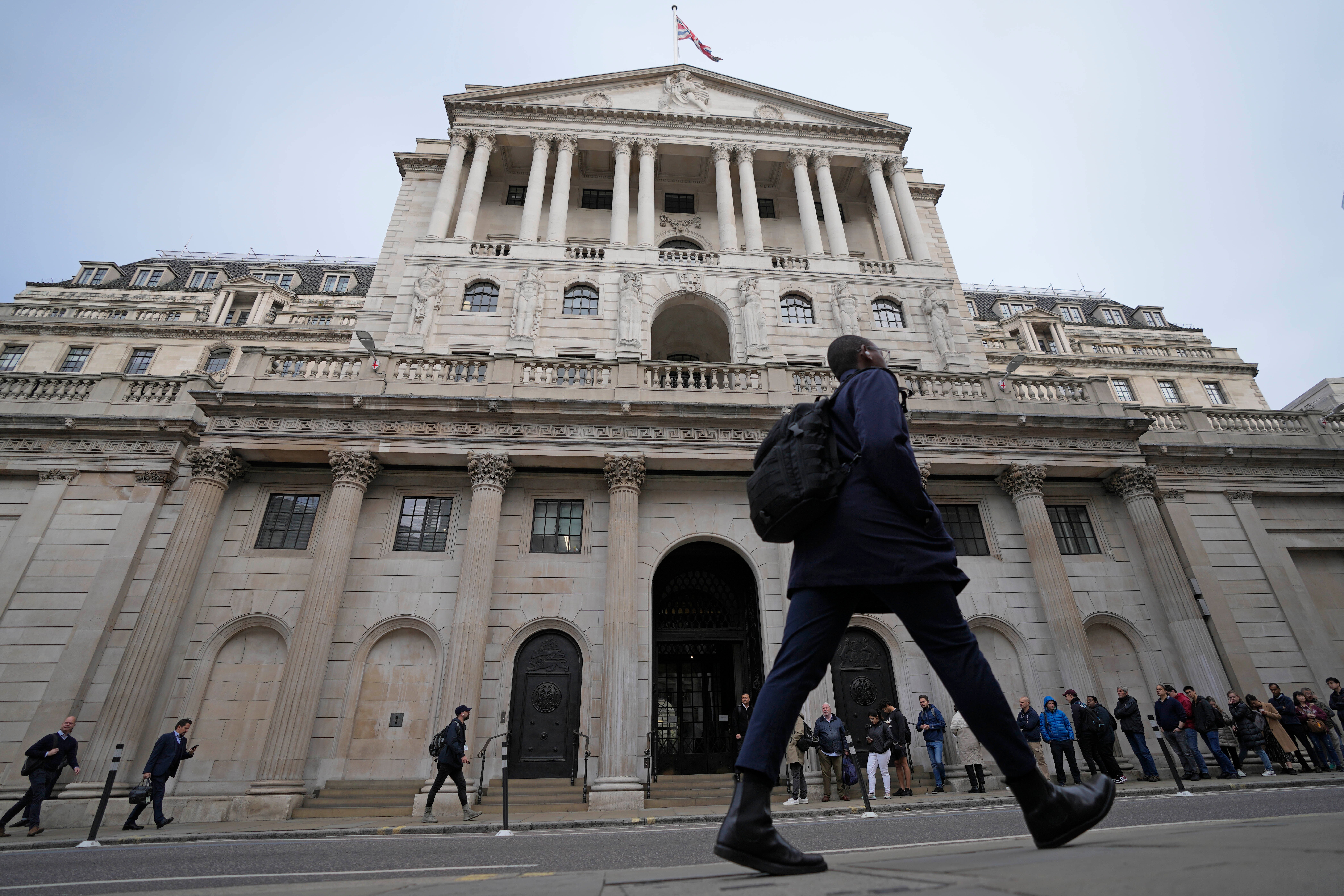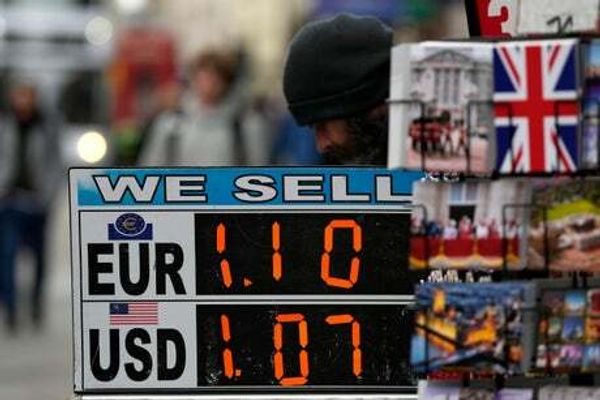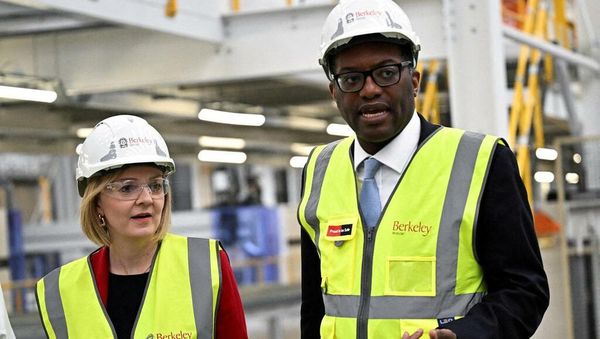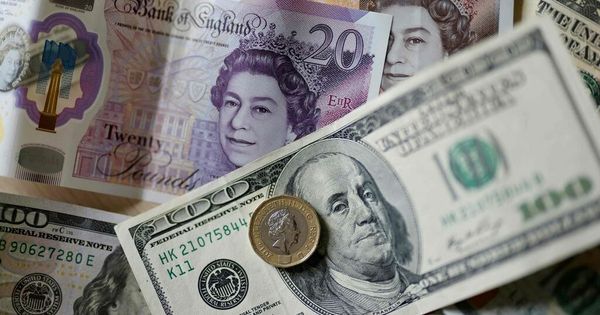
Labour leader Sir Keir Starmer
(Picture: PA Wire)Keir Starmer has called for Parliament to be recalled after the Government’s mini-budget plunged the UK financial market into turmoil.
The Labour leader said the Government must call back MPs - currently on a conference recess - back to Parliament and abandon its controversial new budget comprising a raft of major tax cuts.
Speaking to reporters in Liverpool on Wednesday, Sir Keir said: “The Government has clearly lost control of the economy.
“What the Government needs to do now is recall Parliament and abandon this budget before any more damage is done.”
His comments came as the Bank of England launched an emergency UK government bond-buying programme to prevent borrowing costs from spiralling out of control and stave off a "material risk to UK financial stability".
The Bank announced it was stepping in to buy government bonds - known as gilts - at an "urgent pace" after fears over the Government's economic policies sent the pound tumbling and sparked a sell-off in the gilts market.
The Bank's extraordinary intervention, responding directly to the Government's tax-cutting strategy announced in its mini-budget unveiling last week, will pile further pressure on Liz Truss and Kwasi Kwarteng to defend a vision for the economy that has spooked markets and shocked most mainstream economists.
While the pound hit an all-time record low of 1.03 against the US dollar on Monday, the yield on 10-year gilts - which is a proxy for the effective interest rate on public borrowing - has also soared by the most in a five-day period since 1976, according to experts.
The scale of the crisis in the markets has led to unease in some quarters of the Conservative Party, just days before Tory MPs and thousands of members will descend upon Birmingham for Liz Truss' first party conference as Prime Minister.
The Bank of England said: "Were dysfunction in this market to continue or worsen, there would be a material risk to UK financial stability.

"This would lead to an unwarranted tightening of financing conditions and a reduction of the flow of credit to the real economy.
"In line with its financial stability objective, the Bank of England stands ready to restore market functioning and reduce any risks from contagion to credit conditions for UK households and businesses."
The Treasury responded by reaffirming its commitment to the Bank of England's independence and said the Government "will continue to work closely with the Bank in support of its financial stability and inflation objectives".
The Bank said it would buy bonds "on whatever scale is necessary" in order to steady gilts after Chancellor Mr Kwarteng's mini-budget last Friday spooked the markets with his package of tax cuts and increased borrowing.
It said the bond-buying programme would be temporary, starting from today until October 14.
"The purpose of these purchases will be to restore orderly market conditions," the Bank said.
It also postponed next week's planned kick-off of its £80 billion sale of gilts under the so-called quantitative tightening programme until October 31.
Neither Mr Kwarteng nor Ms Truss have shown any willingness to step back from the policies announced on Friday, many of which made good on the promises she had delivered on her leadership campaign trail over the summer.
But the market angst in recent days has seen the Chancellor step up efforts to reassure the City about his economic plans after the International Monetary Fund (IMF) criticised the Government's strategy - and as the pound suffered further falls on Wednesday.
At a meeting on Wednesday, Mr Kwarteng "underlined the government's clear commitment to fiscal discipline" at a meeting with Bank of America, JP Morgan, Standard Chartered, Citi, UBS, Morgan Stanley and Bloomberg amongst others.
He also told the meeting that the plan announced on Friday would "expand the supply side of the economy through tax incentives and reforms, helping to deliver greater opportunities and bear down on inflation", according to a Treasury readout.
Mortgage borrowers have also been hit by a record overnight drop in the choice of home loan products as the economic fallout from Friday's mini-budget continues.
Moneyfacts.co.uk said 935 fewer residential mortgage products were on the market on Wednesday compared with Tuesday - the highest since its records began - amid uncertainty over interest rates.
The Bank has been facing calls to convene an emergency meeting to consider hiking interest rates to try and counter the Government's tax cut measures.
The Bank's chief economist, Huw Pill, said on Tuesday a "significant monetary response" may be required, but signalled this would not come until policymakers are due to meet as scheduled in November.
Representatives from Bank of America, JP Morgan, Standard Chartered, Citi, UBS, Morgan Stanley and Bloomberg were called to attend a meeting with Mr Kwarteng on Wednesday following days of turmoil.
In an extraordinary statement, the IMF said it was "closely monitoring" developments in the UK and was in touch with the authorities, urging the Chancellor to "re-evaluate the tax measures".
It warned the current plans, including the abolition of the 45p rate of income tax for people on more than £150,000, are likely to increase inequality.
The pound suffered further falls on Wednesday morning, falling back to 1.06 US dollars at one stage after reaching 1.08 US dollars on Tuesday.
The FTSE 100 Index also fell sharply after opening on Wednesday, falling nearly 2% following market losses in the US overnight, before paring back declines.










